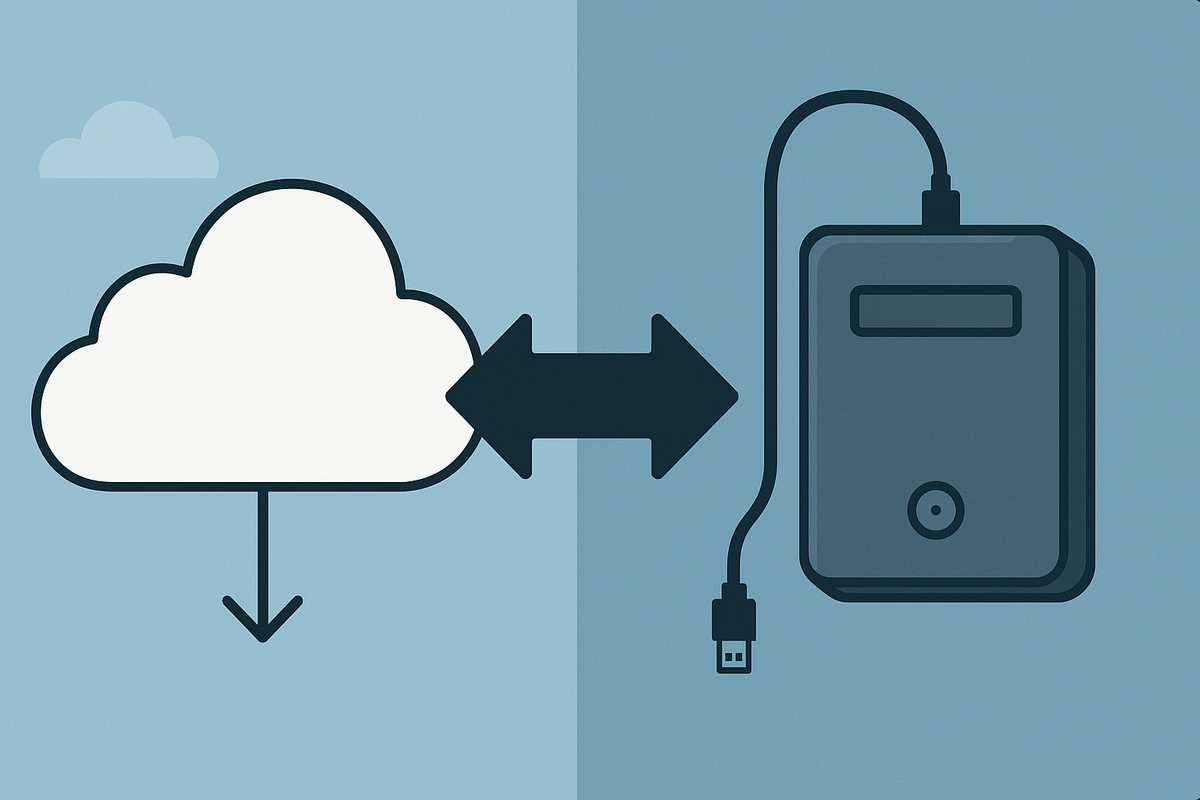Cloud Storage vs External Hard Drives: Which One Should You Use in 2026?

We all have files we don’t want to lose — photos, documents, videos, work projects. But storing them safely has always been a balancing act. Do you trust the cloud, with your files floating around on servers you don’t see? Or do you rely on the familiar click and hum of an external hard drive sitting on your desk?
In 2026, both options are better than ever — but they also come with their own trade-offs. Let’s talk honestly about each one, so you can decide which makes more sense for your life right now.
The Case for Cloud Storage
Cloud storage is everywhere now. Services like Google Drive, Dropbox, OneDrive, and iCloud have become part of our daily lives without us even noticing. If you’ve ever shared a link to a folder, backed up your phone photos automatically, or opened a document on your laptop that you started on your phone — you’ve used the cloud.
The biggest strength of cloud storage is convenience. Your files live online, so they’re available anywhere. Forget your laptop at home? Log in from a café computer. Need to share a 2GB video? Just send a link instead of a USB stick.
Cloud storage also shines in peace of mind. If your laptop dies or your phone breaks, your files are still safe. Providers keep multiple backups across different servers, meaning it’s rare to truly lose anything.
But cloud isn’t perfect. It relies on an internet connection. No Wi-Fi? No access. And while most providers offer free space, serious storage usually means paying a subscription. Over years, that can add up. Plus, there’s always the lingering question: Do I really trust a company with all my personal files?
The Case for External Hard Drives
Then there’s the classic: the external hard drive. In 2026, these are smaller, faster, and more affordable than ever. Portable SSDs can now fit in your pocket and transfer massive files in seconds.
The beauty of a hard drive is control. Your files are physically with you. Nobody’s server, no subscription fees, no internet required. Plug it in, copy files over, unplug it. Simple.
For people who work with huge files — video editors, photographers, developers — an external drive is often essential. Uploading a 50GB video project to the cloud isn’t just inconvenient, it’s sometimes impossible without super-fast internet.
But hard drives have their downsides. They can break, get lost, or be stolen. A single coffee spill, and years of memories could vanish. And unlike the cloud, you don’t get automatic syncing. If you forget to back something up, it’s gone.
Which One Fits You in 2026?
The real answer isn’t that one is “better” than the other — it’s about your lifestyle.
- If you’re always on the go, using multiple devices and needing instant access to everything, cloud storage is the clear winner. It keeps your files in sync across your digital life.
- If you’re working with huge files or you just like the security of holding your data in your hand, an external hard drive is hard to beat. No waiting for uploads, no worrying about subscriptions.
- If you’re extra careful, the best approach is both. Store your critical files on the cloud for safety, and keep a local backup on a hard drive for control. That way, you’re protected from both hard drive failures and internet hiccups.
The Human Side of It
This isn’t just about tech — it’s about memories, creativity, and peace of mind. Think of your photos: family holidays, your first apartment, the silly selfies that don’t matter until years later. Do you want them locked on a single fragile drive? Probably not.
At the same time, do you feel comfortable handing all of those moments to a tech giant, trusting they’ll never have a breach or shut down a service? That hesitation is real, too.
In 2026, most people find themselves mixing the two: cloud for everyday access, hard drives for long-term archiving. It’s like the digital version of keeping important papers both in a filing cabinet at home and scanned into your email. Redundancy is safety.
So which should you use — cloud storage or external hard drives? The best answer is: it depends on your needs, and maybe you don’t have to choose at all.
- Use the cloud for convenience, syncing, and backup protection.
- Use a hard drive for big files, offline access, and extra peace of mind.
- Use both if your files are truly important.
At the end of the day, what matters isn’t where your files live, but that you know they’re safe when you need them most. Whether that’s in the palm of your hand or floating in the cloud, the right choice is the one that lets you sleep easier at night.